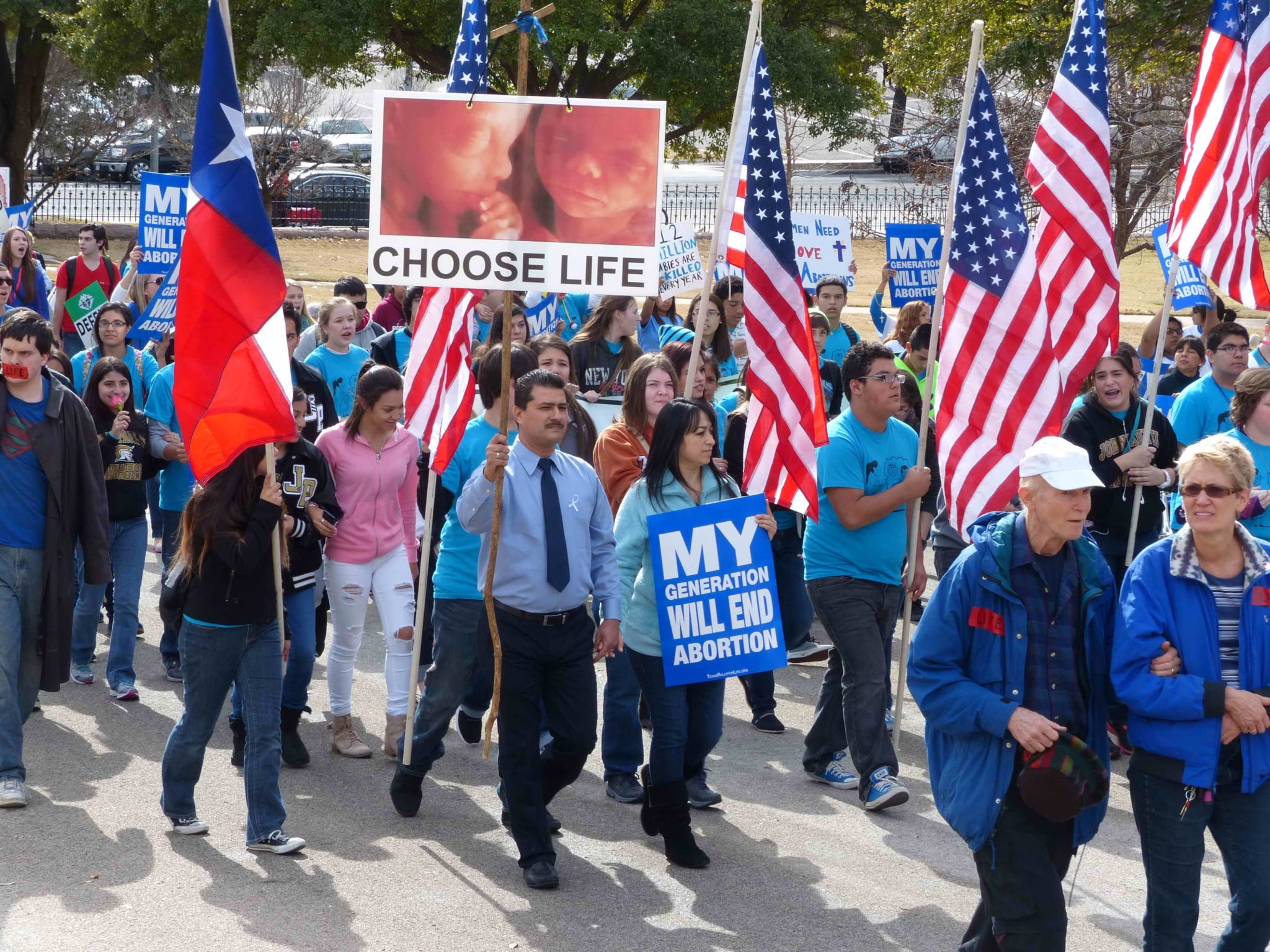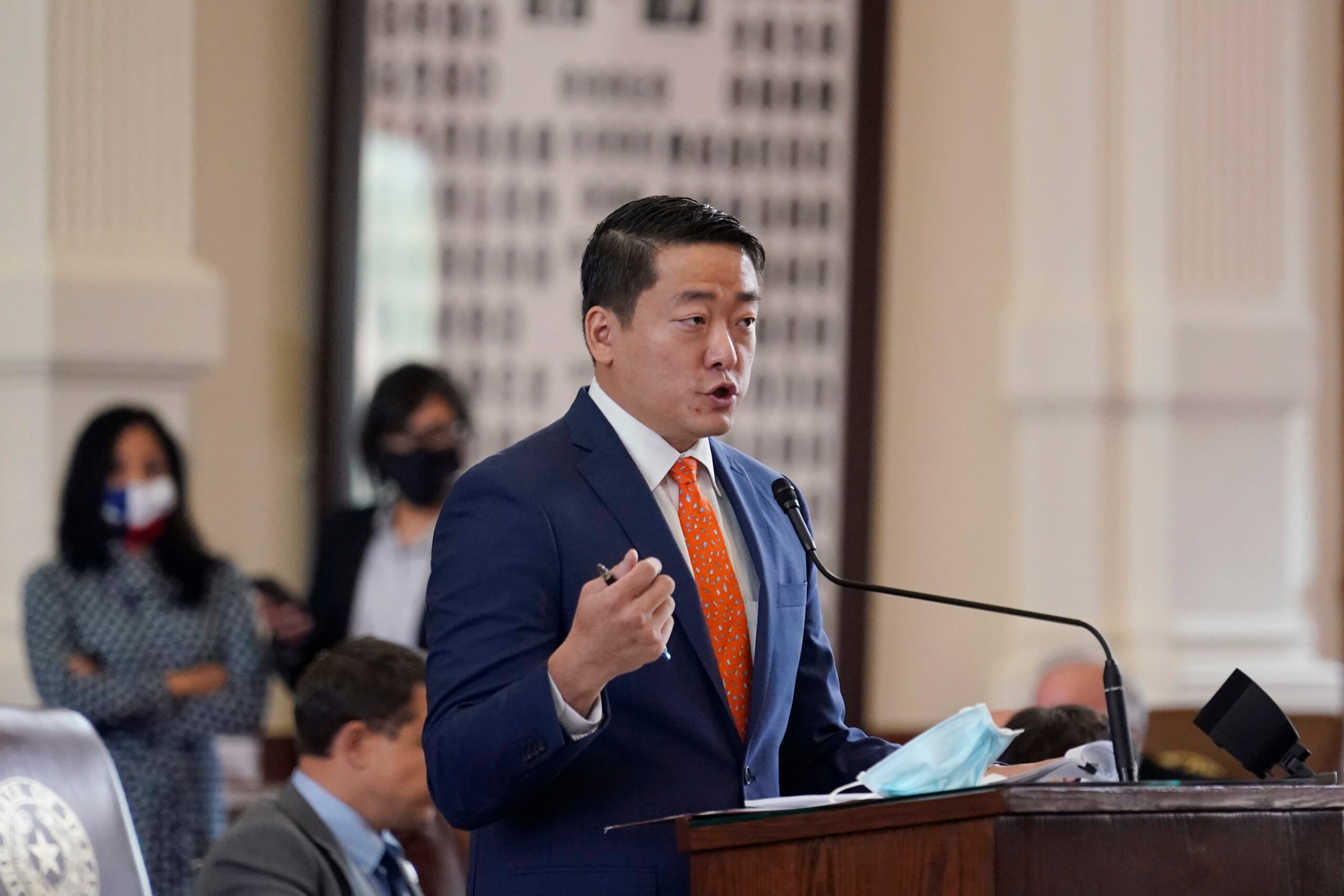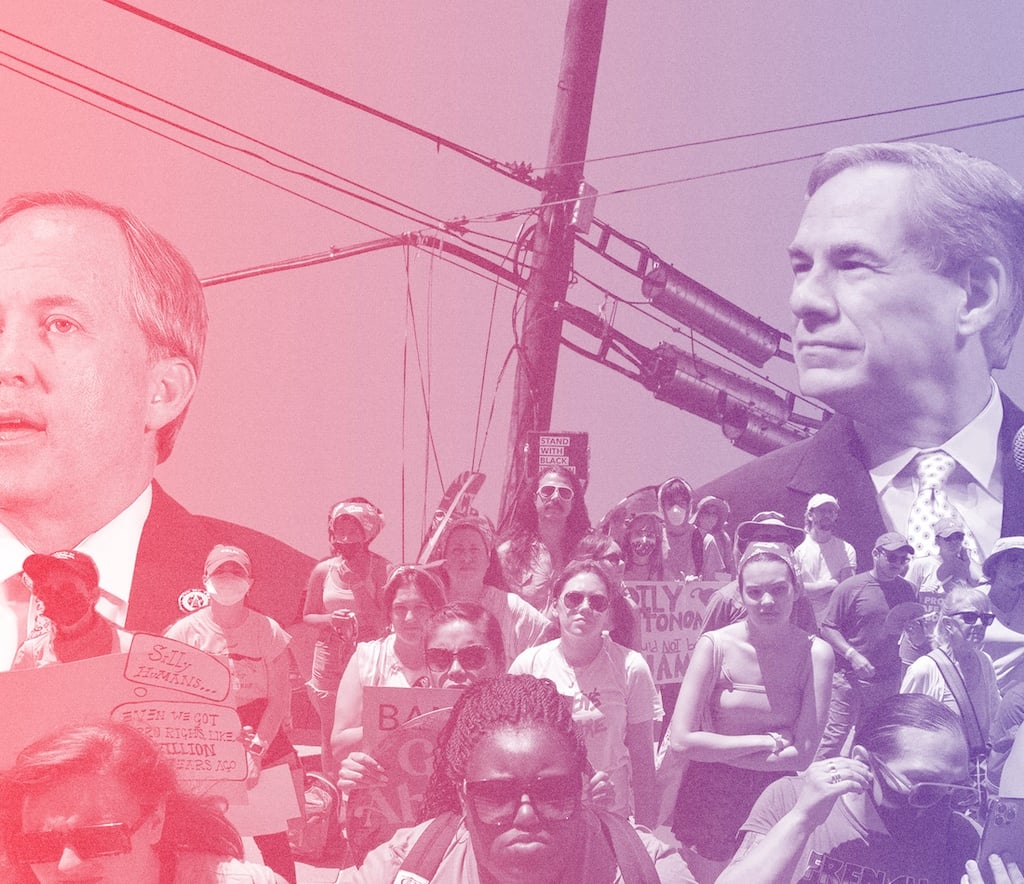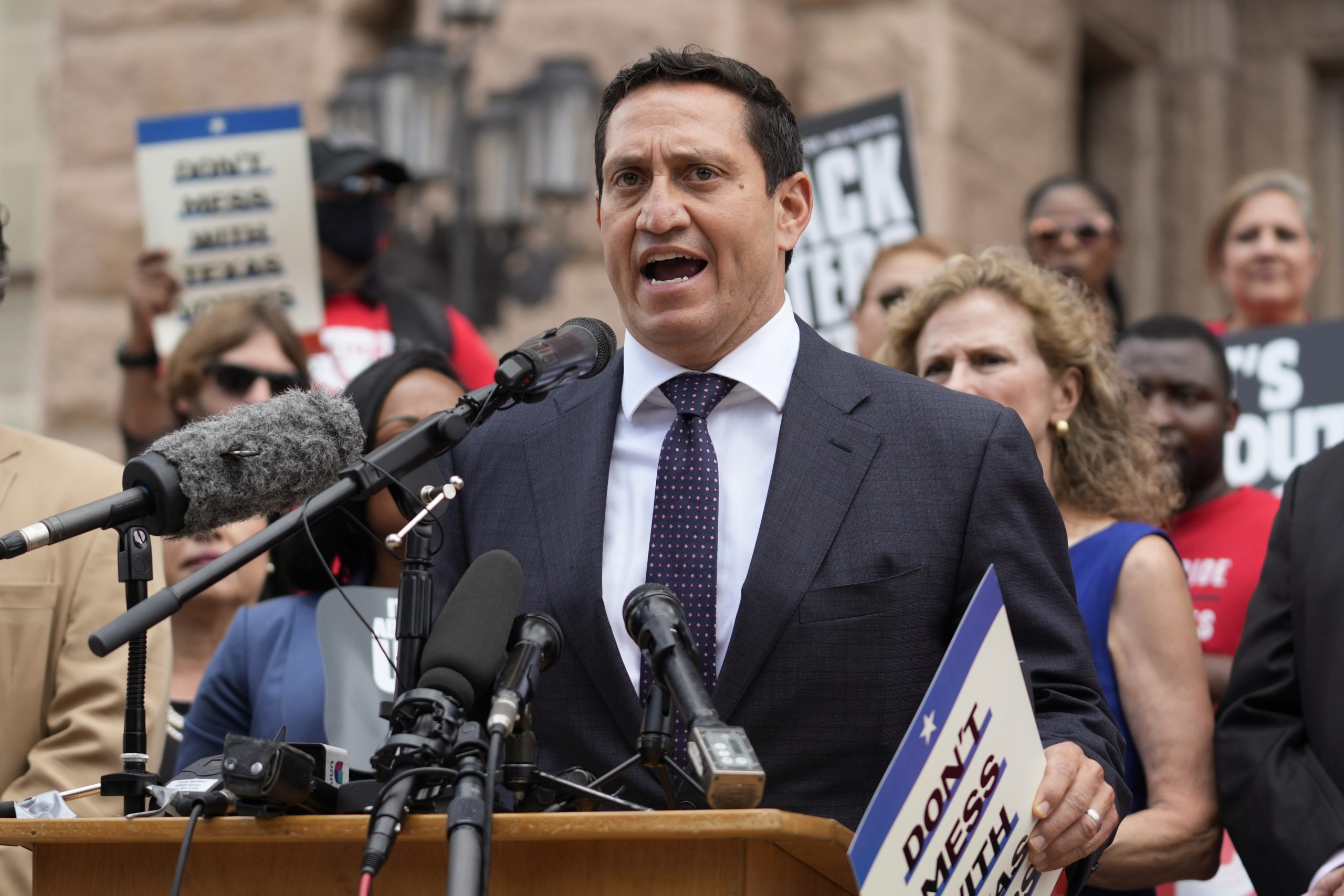
Millennial Hispanics Are Losing Their Religion
A Pew study showing large shifts in Hispanic religious identity could have major implications for Texas politics.
Above: Rally at the Capital marking anniversary of Roe v. Wade, January 25, 2014
By 2020 or so Texas will become a predominantly Hispanic state. The political implications of this demographic transformation have been widely discussed. Democrats hope to capitalize on the growing clout of Hispanics to reverse the party’s dismal performance of the last two decades. Republicans, at least the smart ones, are banking on appeals to socially conservative Hispanics to hold onto power.
But the Pew Research Center’s new study “The Shifting Religious Identity of Latinos in the United States” shows that the future isn’t simply one where Hispanics will replace Anglos as the demographically-dominant ethnic group. Rather, it’s about a rising generation of young Latinos who are redefining what it means to be “Hispanic.” Born between 1982 and 2004, these millennials—like their white, black and Asian counterparts—look to be an even tougher sell for the GOP than their elders. Still, it’s unclear whether they will show up for Democrats either.
Pew’s survey of more that 5,000 Hispanics nationwide shows that an increasing number of Latinos are leaving Catholicism, their childhood faith. Just 55 percent of those surveyed identify themselves as Catholic, down from 67 percent in the previous comprehensive study in 2006. Now, nearly a quarter of all Hispanics say they are former Catholics. Overall, non-Catholics are nearly evenly divided between evangelical Protestants (16 percent) and those who profess no religious affiliation (18 percent). Mainline Protestants and other Christians round out the remaining 8 percent.
The conversion of some Catholics to evangelicals holds out hope for the GOP. Consider the study’s findings on abortion. Overall, Hispanics tend to be conservative on this issue. Fifty-three percent say that abortion should be completely or mostly illegal, with just 40 percent in favor of abortion rights—a flip of the 40/54 percent split among Americans generally. With Hispanic evangelicals, 70 percent are in favor of making abortion illegal. That’s even more than white (non-Hispanic) evangelicals. Even so, these evangelical Hispanics still mostly identify as Democrats (48 percent vs. 30 percent support for the GOP). That’s progress for Republicans since, overall, Hispanics identify as Democrats 56/21 percent.
But this is little more than a consolation prize when contrasted with how religiously unaffiliated Hispanics are changing the landscape. The unaffiliated, also known as “nones,” include those who think of themselves as “spiritual, but not religious” and those who are neither spiritual nor religious. They are far more pro-choice than Hispanics overall, even more so than the general public. They are also staunchly Democratic, overwhelming Republicans by 4-to-1.
According to the study, the bulk of the “nones” are young. What’s going on with the under-30 crowd? These are millennials, a generation significantly detached from institutions, making its presence felt. In 2010, unaffiliated Hispanics made up 14 percent of the 18-29 category. In 2013, as millennials rapidly came to dominate and define that age group, the unaffiliated more than doubled, rising to 31 percent of the cohort.
Hispanic millennials are a demographic tidal wave, the dominant ethnicity among millennials. Some 800,000 underage Hispanics turn voting age every year. They are the first generation that is mostly U.S.-born and identify closely with their non-Hispanic contemporaries. Their turn toward being “nones” closely matches the national trend, according to a separate Pew study. As the remaining millennial Hispanics come of age over the next decade, “nones” could wipe out whatever modest gains the GOP now enjoys with evangelical Hispanics.
In Texas, this doesn’t portend well for Republicans. As Sen. Ted Cruz prophesied in The New Yorker in 2012,
“If Republicans do not do better in the Hispanic community, in a few short years Republicans will no longer be the majority party in our state….If that happens, no Republican will ever again win the White House….the Electoral College math is simple….you can’t get to two-seventy electoral votes. The Republican Party would cease to exist.
Still, Democrats should pause before counting on votes from a group partially defined as “unaffiliated.” Most Hispanic evangelicals, as the Pew study reveals, reliably turn out for church services, bible study and “say churches should express their views on political and social issues.” Churches have long been a locus for both social and political change on the right.
Their unaffiliated millennial counterparts are largely disengaged from organizations and institutions that traditionally facilitate civic participation. Will they find a vehicle for social change and political participation? Most importantly, will they connect at the ballot box?
What would it take to make these unaffiliated put their faith in politics? Perhaps seeing their progressive proclivities as an opportunity for Democrats is to get it backwards. Here, what may move Hispanic millennials is the opportunity to take ownership of political institutions like the Democratic Party or to find new ones.


